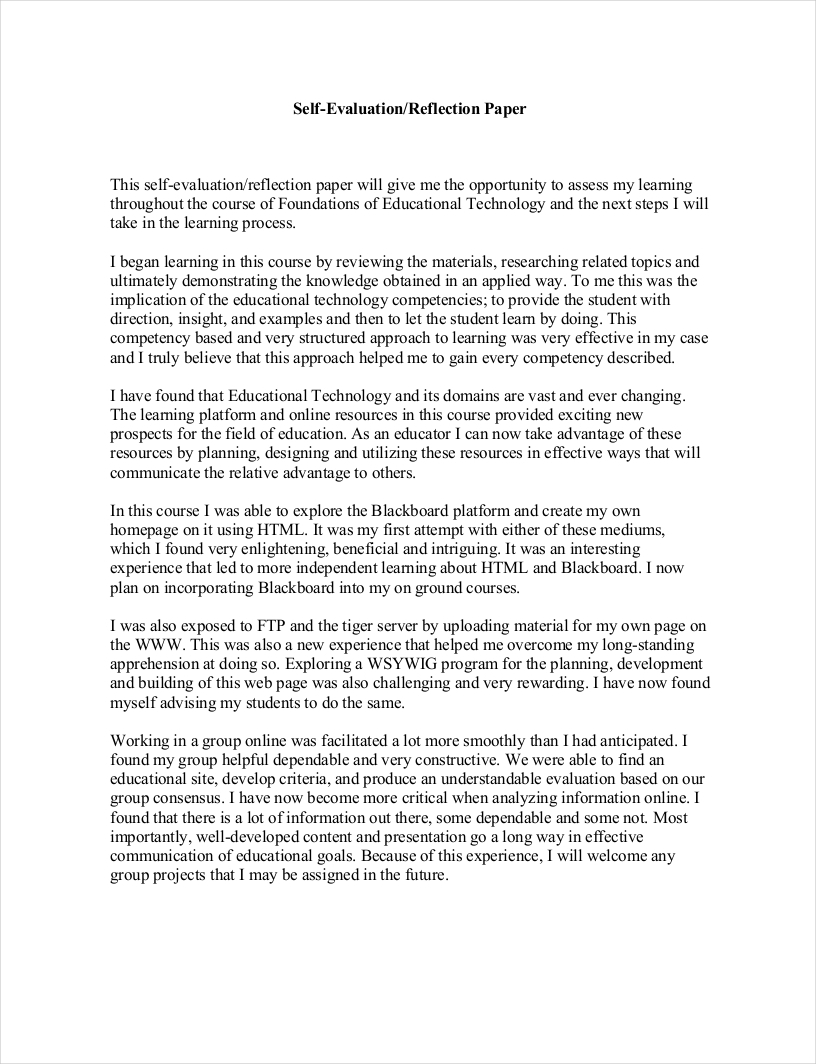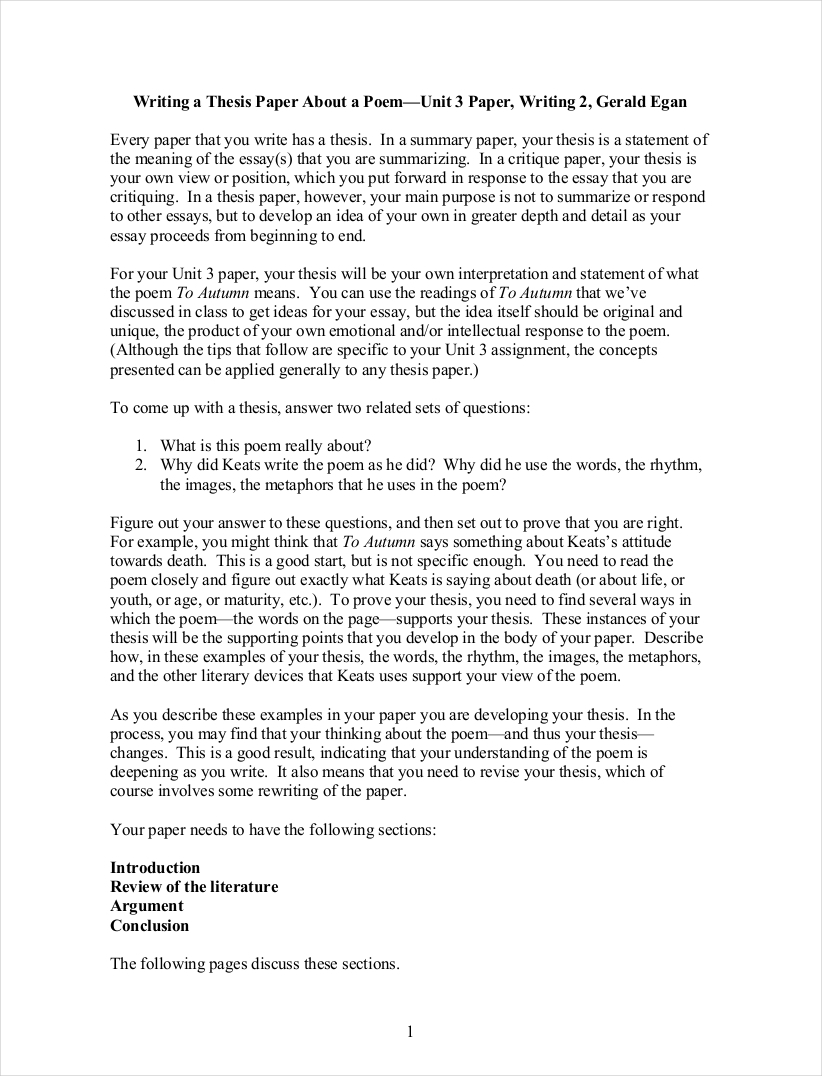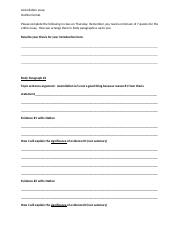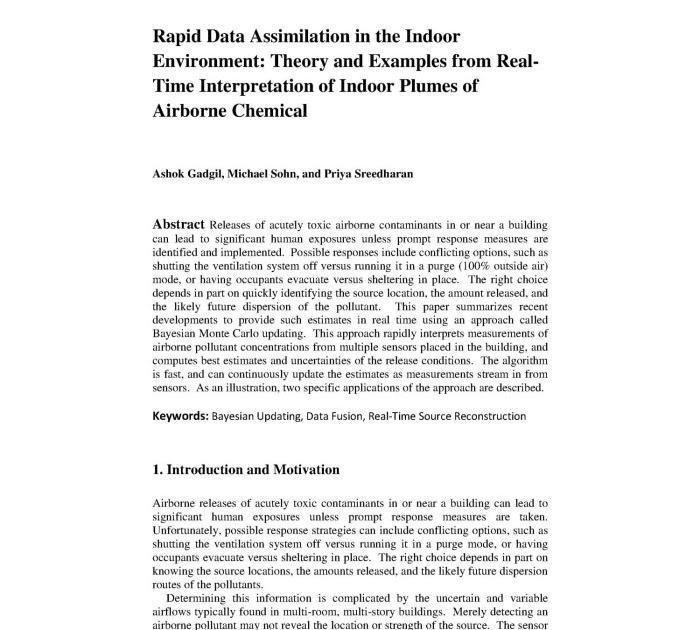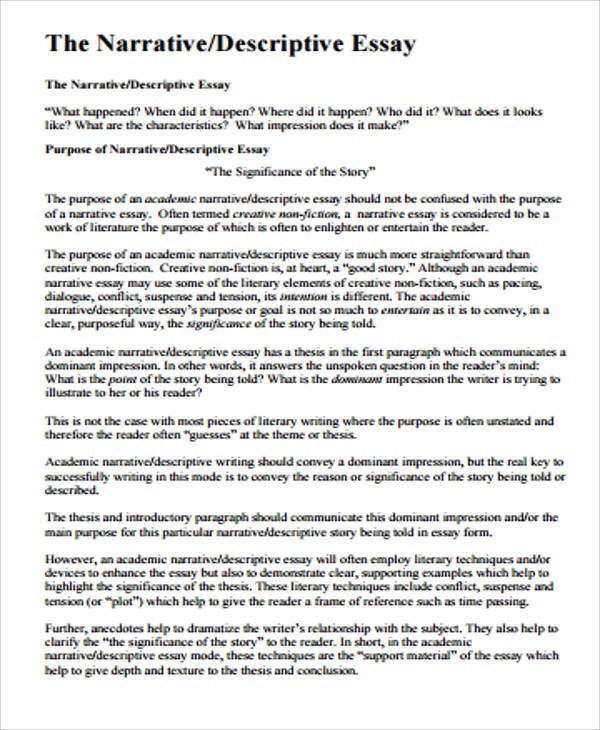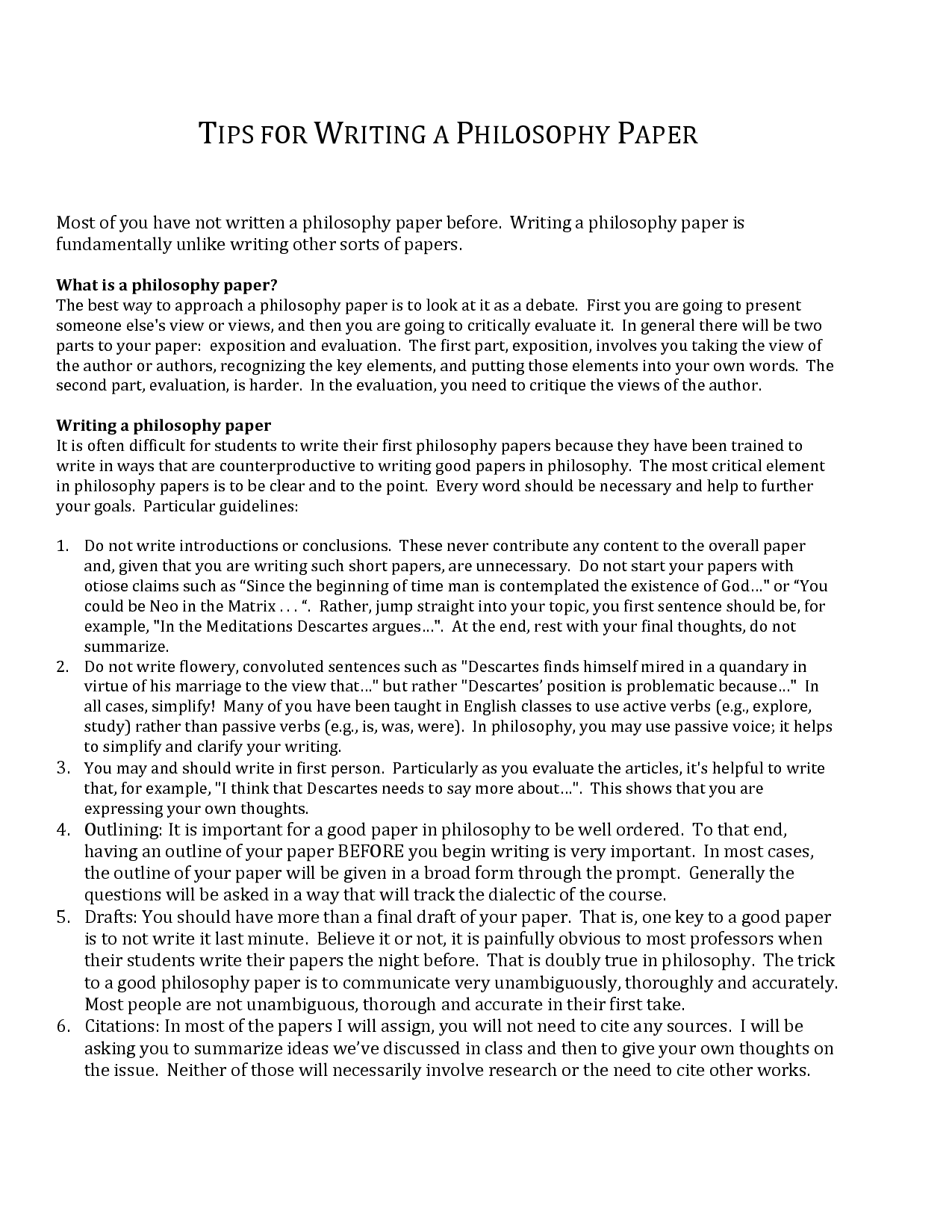
Writing philosophy papers does not require words that are esoteric, long, or newly invented. The rules for poetry and fiction are different. But philosophy is neither poetry nor fiction, and your papers need to focus readers’ attention on the ideas WRITING A PHILOSOPHY PAPER Philosophical writing is different from the writing you are asked to do in other courses; these guidelines might be helpful, but do not assume that following them is enough to write a good philosophy paper. 1. What you are trying to How to Write a Philosophy Paper Shelly Kagan Department of Philosophy 1. Every paper you write for me will be based on the same basic assignment: state a thesis and defend it. That is, you must stake out a position that you take to be correct, and then you must offer arguments for that view, consider objections, and reply to those objections
How To Write A Philosophy Paper? | Edusson Blog
edu uses cookies to personalize content, tailor ads and improve the user experience. By using our site, you agree to our collection of information through the use of cookies.
To learn more, view our Privacy Policy. edu no longer supports Internet Explorer, writing a philosophy paper. To browse Academia. edu and the wider internet faster and more securely, please take a few seconds to upgrade your browser. Log In with Facebook Log In with Google Sign Up with Apple. Remember me on this computer. Enter the email address you signed up with and we'll email you a reset link. Need an account?
Click here to sign up. Download Free DOCX. Download Free PDF. How to write a philosophy paper. Carla Bagnoli. Download PDF Download Full PDF Package This paper. A short summary of this paper. Download PDF. Download Full PDF Package. Translate PDF. What you are trying to accomplish: The virtues of a philosophy paper A philosophy paper consists in a critical analysis of a thesis and in a reasoned defense of some claims.
If you advance a claim, your claim should be supported by argument. If you attribute a view to someone, you should support your attribution with reference to the original text and interpretative remarks.
When you make claims about a philosopher you have read, writing a philosophy paper, make sure that you support your interpretation with references to specific passages. When you take a specific formulation of a point from a text, use quotations. You must exhibit reasons for what your hold, not just voice your concern about a writing a philosophy paper matter. Make your reasons explicit.
Use only the sentences that you need to express your claims. In order to construct an writing a philosophy paper, each step of your reasoning should be clear and in the right order, writing a philosophy paper. The paper should a precise structure: remind the reader of where you are in your argument, where are you going, what she should expect. That is, make the structure of your argument clear and the progression of your paragraphs explicit.
Your paper should show that you have thought about the issue seriously, writing a philosophy paper, and that you have been able to think critically about it. It is not enough to list and summarize all the opinions and arguments you have heard from others: you need to critically examine them and to come up with your own view of the matter. Of course, this does not mean that you are required to give an original contribution to philosophy every time you write a response paper!
It simply means that through careful consideration of the arguments, you must show to have formed your reasoned opinion about an issue, and you must be ready to defend your position by argument. How to start Usually, writing a philosophy paper, the most difficult step in writing is to start. The opening section should be devoted to explain to the reader what you are up to. But what it is going to be eventually the opening paragraph of your paper is probably the last to be written.
When you start writing, the first step is to focus on writing a philosophy paper topic and try to understand what you are required to do. The first paragraph should be written after everything else is in place: when you have a claim, an argument, and a conclusion. To start off: Listen to the question first. You might be asked to write two kinds of papers: one whose aim is mainly reconstructive and exegetical, or one whose aim is to consider an argument for or against a certain thesis.
You are better off starting with selecting the relevant passages. Start your paper with a critical examination of a passage that you think crucial in showing Kant's view of virtue. Then, try to make sense of passages that concur or clash with the one you selected and commented, and offer your conjecture about how to interpret Kant's view of the matter.
Compare different interpretations, explain what is best and why. In this kind of exercise, you are often required to comment on a passage and thus to paraphrase a philosopher. Be careful about paraphrasing: try to make your comments valuable, make the philosopher's view explicit. Although this kind of paper is mainly exegetical, you might want to state your claims not only about the view to attribute to Kant, but also about whether his view makes sense.
euthanasia, without reference to specific texts. First try to define clearly the issue. What is euthanasia? How do philosophers define it? What are the reasons for it? What are the reasons against it? What are the tacit assumptions on which these arguments rest?
Give most charitable reconstruction of each argument for and against it. Offer examples that concur with the thesis you are elucidating or proposing, imagine counterexamples that show your thesis does not work, writing a philosophy paper, and try to reply. After considering all reasons for and against, reach for a conclusion. In some cases, the conclusion might be merely negative: you conclude that no arguments presented in the most charitable manner are decisive. In some other cases, the conclusion might be positive: you have shown that X is the best argument for Y.
How to go on? Examples are crucial in philosophical discussions. Make the structure of your argument explicit. Make an outline A philosophy paper should have a clear structure and its arguments should writing a philosophy paper well organized. In order to give logical organization you should make an outline of your argument before starting to write. The outline should be very detailed: state precisely your aims and claims, writing a philosophy paper, how you want to support them, what arguments you adopt, describe each step of the argument, and say how the conclusion follows.
Example of a first paragraph: "My thesis is that Aristotle holds thesis X. I will argue for this claim on the basis of a critical analysis of Book I. First, I will show that if we interpret Aristotle as defending X, then Y follows. Make several drafts A clear exposition and a compelling argument are hard to achieve.
Try different ways of organizing your thoughts and arguments before submitting the final draft. Quotations and Footnotes If you quote from a source, the quotation must be marked by quotes and set off from the rest of the test and footnoted. If you quote an idea without quoting it directly from the source, you should acknowledge it in a footnote. Plagiarism and Academic Integrity Clearly acknowledge and reference ideas that writing a philosophy paper have derived from others, especially when you are using secondary literature as sources of interpretation, writing a philosophy paper.
This is required by academic integrity. Quoting a passage without quotation marks and without acknowledging the author or rephrasing passages from a source without acknowledging the author are serious violation of academic integrity: they result in plagiarism.
Cases of plagiarism will be dealt with according to the Philosophy Dept. Related Papers Doing Philosophy A Practical Guide for Students By Dina Mamdouh.
Among Friends: Cicero and the Epicureans thesis By Nathan Gilbert. Some Problems Concerning Empirical Studies in Philosophy By Milan Jovanović. Was Feyerabend a Popperian? Solipsismo, Solidão e Finitude: Algumas lições de Strawson, Wittgenstein e Cavell sobre metafísica e método filosófico By Jônadas Techio.
Download file. About Press Blog People Papers Job Board We're Hiring! Help Center Find new research papers in: Physics Chemistry Biology Health Sciences Ecology Earth Sciences Cognitive Science Mathematics Computer Science Terms Privacy Copyright Academia ©
How to Write a Philosophy Paper
, time: 36:02Writing A Philosophy Paper - Department of Philosophy - Simon Fraser University

sort of paper you write. You can think of philosophical writing as the production of some text that will yield particular answers to these five questions. Your goal is to produce something that yields satisfying answers. If you know what answers a philosophical paper should yield, then you know what a philosophical paper should look like How to Write a Philosophy Paper Shelly Kagan Department of Philosophy 1. Every paper you write for me will be based on the same basic assignment: state a thesis and defend it. That is, you must stake out a position that you take to be correct, and then you must offer arguments for that view, consider objections, and reply to those objections turn. Good philosophy proceeds with modest, careful and clear steps. Structuring a Philosophy Paper Philosophy assignments generally ask you to consider some thesis or argument, often a thesis or argument that has been presented by another philosopher (a thesis is argument, you may be asked to do one or more of theFile Size: 90KB
